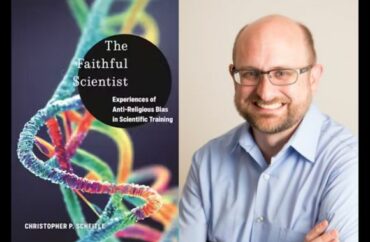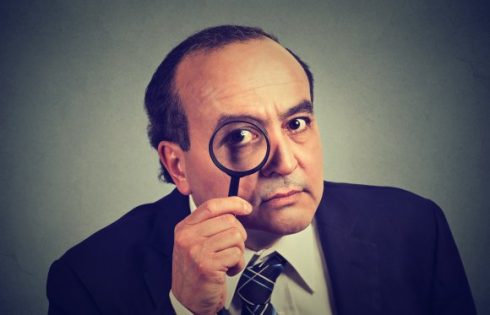
ANALYSIS: Book explores how higher ed can be biased against religious students
“Religious diversity,” is good for higher education, according to an atheist professor.
West Virginia University sociologist Christopher Scheitle explores this topic in his new book, “The Faithful Scientist,” out now by New York University Press.
The book is an easy read that uses data and stories from religious grad students surveyed by the author. A copy was provided to The College Fix.
The book argues higher education needs to do more to accommodate religious students.
“If diversity in science is beneficial because it brings new ideas and different perspectives to scientific workplaces, education and outreach, then religious diversity itself would seem to be a natural contributor to that dynamic,” Scheitle writes.
He said women and “Black graduate students” are more religious than men and white students. Understanding of religious beliefs and values might be lost due to the higher ed echo chamber, a point the author raised with The Fix and in the book.
“Sometimes academics and scientists are often kind of insular and they kind of get into their own world…and lose context,” about where work should fall in their priorities, Scheitle told The Fix during a phone interview.
The insularity of academia in general is a consistent theme throughout the professor’s book.
There is the Muslim chemistry student who faced backlash from a department leader for requesting banquet meal options that were not cooked in alcohol.
A Christian chemistry student shared how concerns about a Sunday department meeting were initially “blown off.” Several Christians had objected to meeting on Sunday due to church obligations.
Common decency, not necessarily more training, is the solution, Scheitle said.
“The most ideal case is that people, when these issues come up…are just understanding and empathetic to other people’s lives,” he told The Fix, when asked about possible solutions.
Ideally, there would be “accommodations” beforehand, but academics should be sympathetic when concerns are raised.
“The best response, what you would want, is ‘sure that’s great, sorry we didn’t think about that,’” he said, giving the example of a student who needed to miss an event to attend church.
MORE: Evangelical voters are ‘enemies’ of democracy, professor says
He told The Fix religious graduate students are “natural untapped allies” to fight for a family-friendly work environment. The father of two kids said these students are not “typically reached out to.”
In the book he also relates hostility from professors to graduate students who have kids. This is a detriment to academia, as many students do want kids.
Religious students are “at least twice as likely to be married and have a child” as their non-religious counterparts, Scheitle wrote in the book. They also want more kids – 77 percent said they want at least one more child.
But about half of “not religious” students say they also want at least one more child beyond what they have now.
“More religious students have those same patterns” of having kids, being married, wanting more kids, as religious individuals in general, Scheitle told The Fix.
“They’re more likely to rate their family life and their marriage…as more important to themselves.” But they “don’t actually differ in their commitment careerwise.”
Religious students “don’t see their research or science as the whole defining aspect of their lives,” he told The Fix.
The book includes examples of the problem Scheitle is trying to tackle.
A biology student said that scientists should be “more involved in politics” because “we are considered some of the smartest people in society.”
But this political involvement has led to conservatives distrusting the input of scientists into public policy issues.
Eva, one student interviewed by Scheitle, is an illustration of why.
“I think on a sociopolitical realm there is a total ignoring of science under the basis of religion,” she said, as quoted in the book.
She said that some people will have beliefs “because the Bible says it.”
Yet, according to Eva, “we can point to studies done, by, like, literally every person that shows there’s climate change, that shows we should not be restricting abortion rights, that jail doesn’t work, that welfare is good, all of these things.”
“But then, science doesn’t help with that, because there’s a religious basis or a moral right and wrong that people are holding onto and they bring that up higher than science,” she said.
“The Faithful Scientist” is a book worthy of study for people like Eva, who appear to dominate higher ed.
MORE: Small Catholic college has produced 104 priests
IMAGES: NYU Press; West Virginia University
Like The College Fix on Facebook / Follow us on Twitter






Please join the conversation about our stories on Facebook, Twitter, Instagram, Reddit, MeWe, Rumble, Gab, Minds and Gettr.